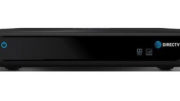The photo at the top of this article is a monitor lizard. There’s no such thing as a television lizard. There, article’s done. You now know the difference between a television and a monitor.
OK, now for real
Seriously, though, you’ll hear the term “TV” and the term “monitor” used almost interchangeably. What’s the difference? Is there a difference, or is it just that snobby tech types like to say “monitor?”
It used to be, that if it had a tuner, it was a TV. If it didn’t, it was a monitor. Also, if it didn’t have speakers, it wasn’t a TV. There’s a legal definition in there somewhere, because in order to be sold as a “television” it has to be able to receive and decode ATSC TV broadcasts. If it isn’t, you have to sell it as a “monitor.” In recent years, though, that definition has been stretched to the point of breaking. There’s been no enforcement when companies have advertised their products as “tunerless TVs.” Since about 80% of Americans’ don’t use the ATSC tuners anyway, it hasn’t been as big of a deal.
Besides, there’s more to consider
There is a bit more to it than that. You can watch TV on your computer, you can put your computer data up on the TV. It gets pretty confusing. And what is “watching TV” anyway? How is watching an on-demand stream through a satellite provider “watching TV” while streaming from YouTube on your computer “not watching TV?” How is watching a live broadcast on your phone “not watching TV” while watching the same broadcast in your living room “watching TV?” The rules were written in the 20th century and you have to wonder if they make sense for today.
The real world difference
So yeah, for your average folks, the difference between TV and a monitor comes down to use. It’s not so much the tuner that’s important, it’s whether you share it with others, and whether it’s optimized for motion viewing or data viewing.
Often times. TVs are built to a higher standard when it comes to things like contrast and refresh rate. Or, to put it another way, typical office computers monitors don’t generally make good TVs. They aren’t bright enough or dark enough, and moving images on them often seem blurry. This isn’t true for gaming monitors, which can be as good or better than high-end TVs. Then again, most people don’t have a gaming monitor on their desk.
On the other hand, monitors tend to look clearer. They are designed to show images at a specific size and if set up properly, even the tiniest text can look nice and clear.
Really what it comes down to is how you’ll use it. Plenty of people buy off-the-shelf TVs and use them as computer monitors. Other folks will buy cheap computer monitors, add some cheap speakers, and call it a TV. The choice is up to you.
Need help with deciding what to do next?
The folks at Solid Signal have two decades of experience helping people make their home theater dreams come true. We have real, trained experts in our Novi, Michigan corporate offices who are ready to give you the best advice on how to live your best digital life. Shop at Solid Signal for the best products and accessories, or call us at 888-233-7563. We’re here for you!




